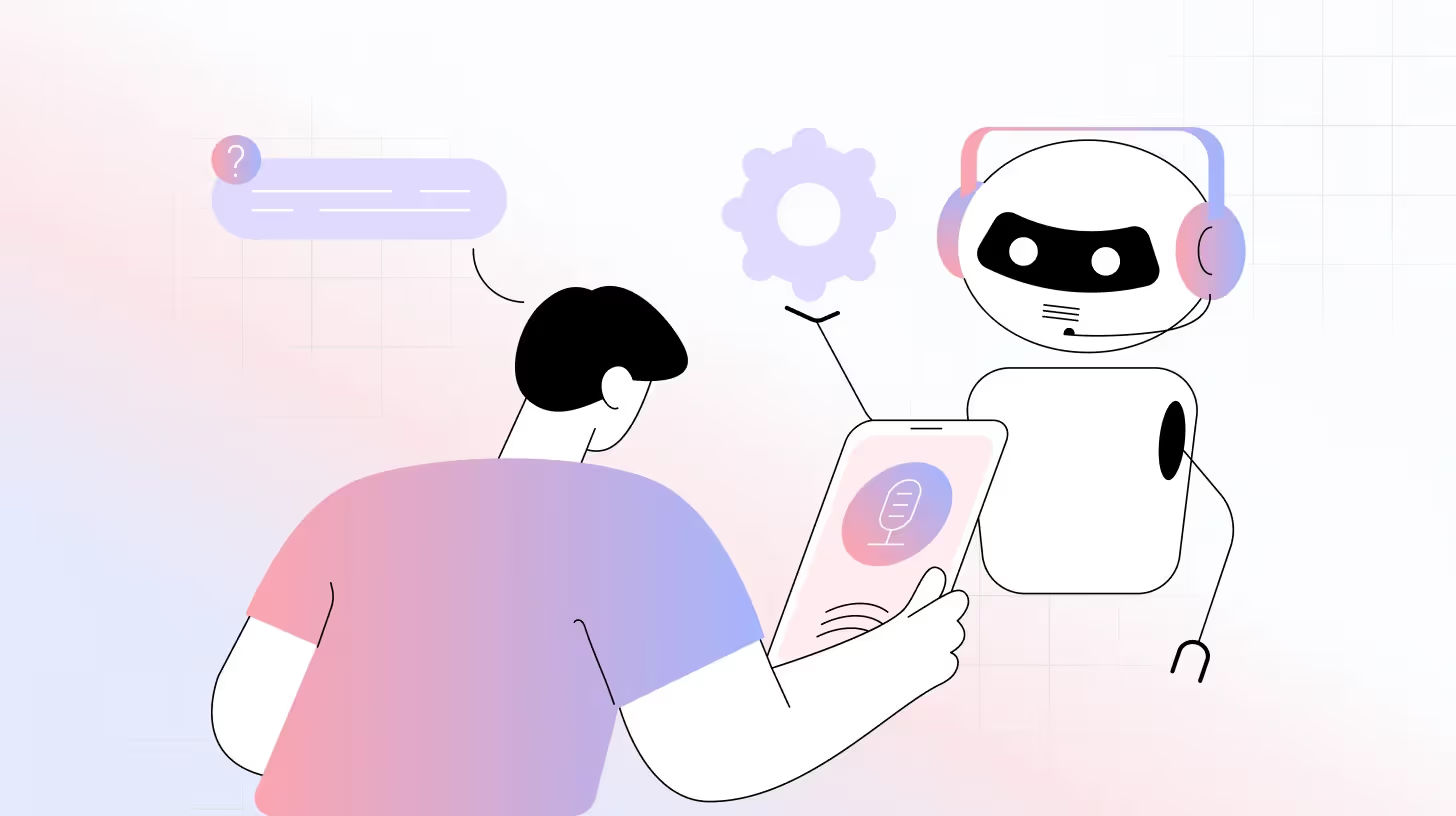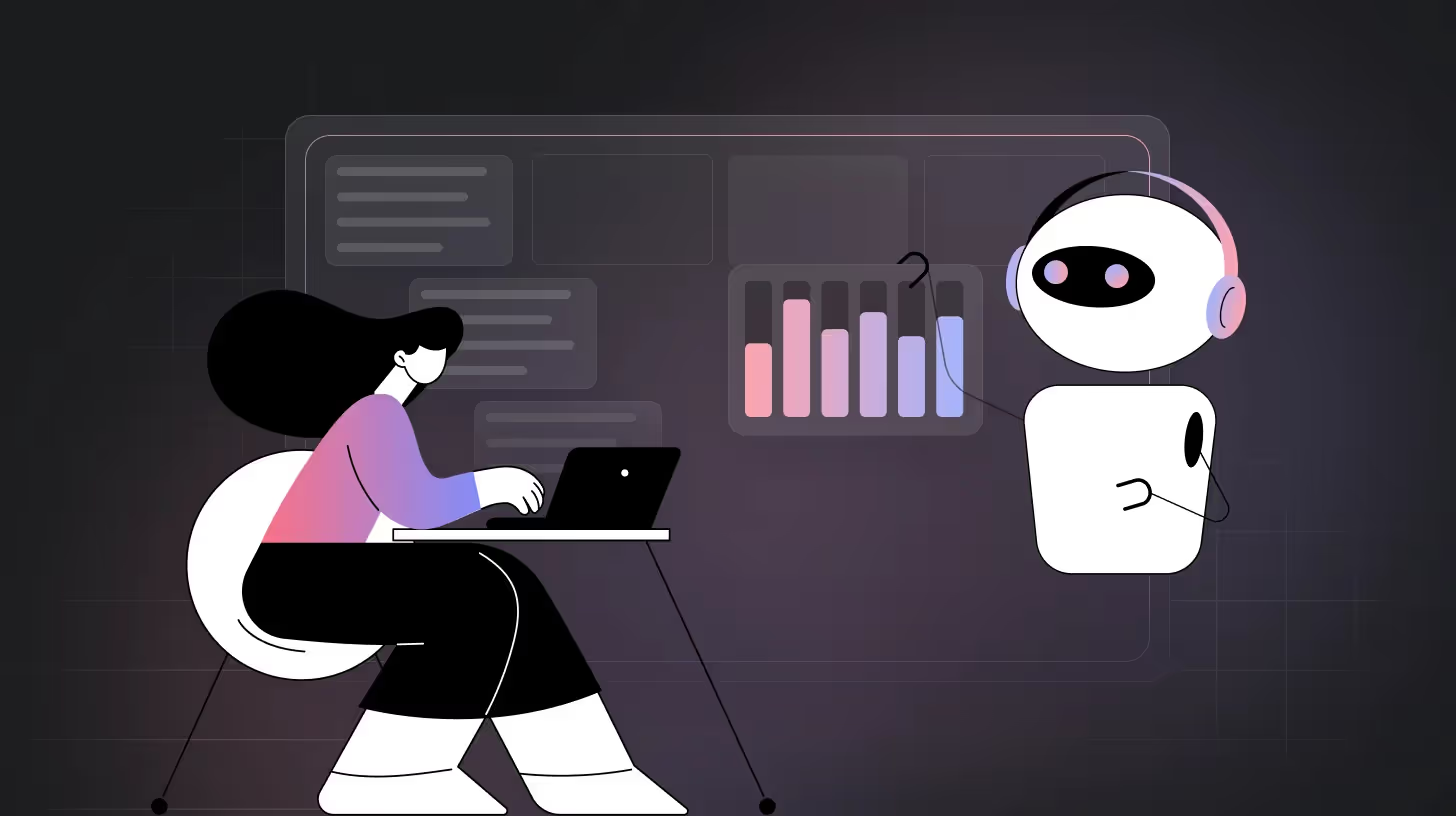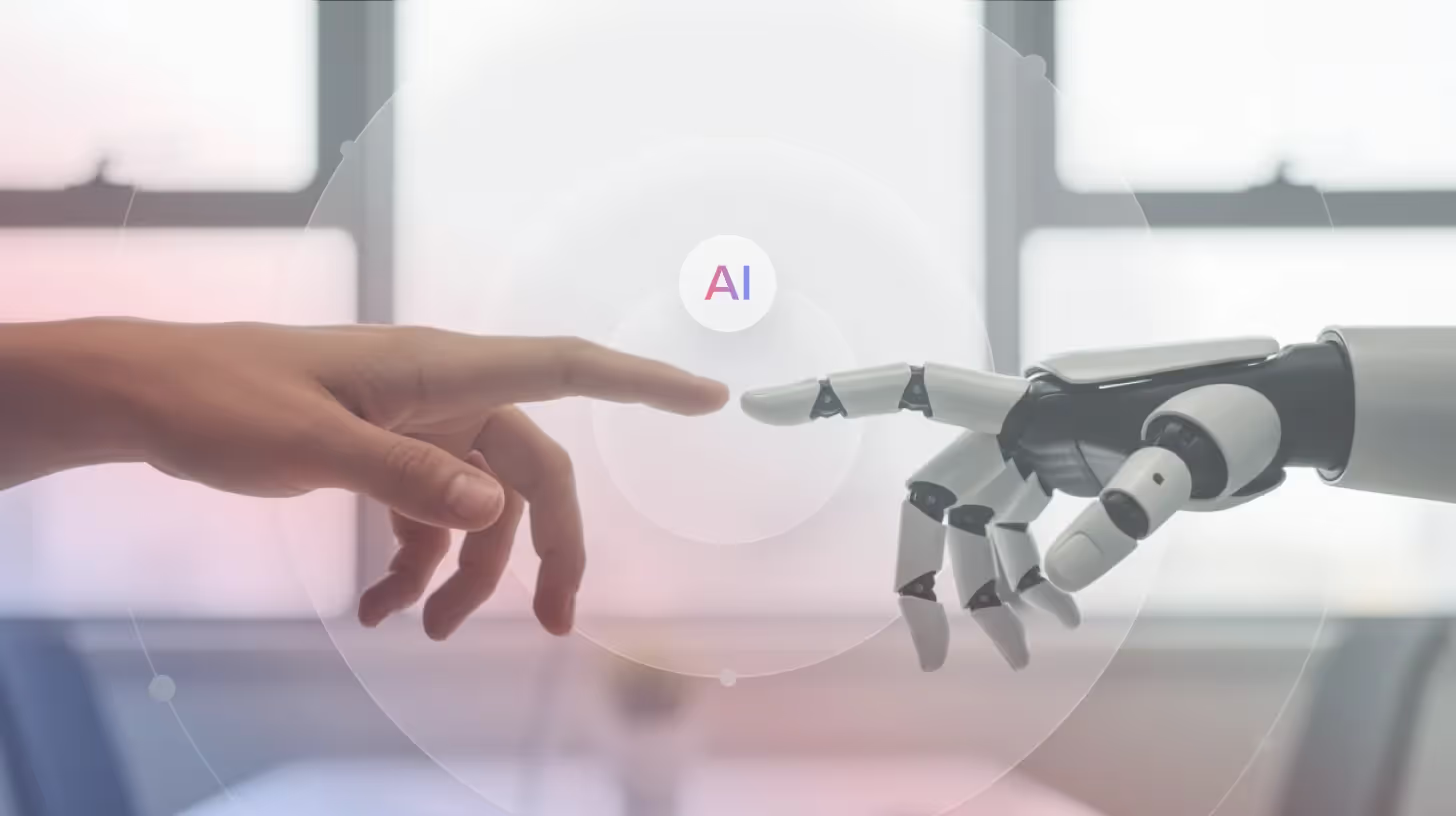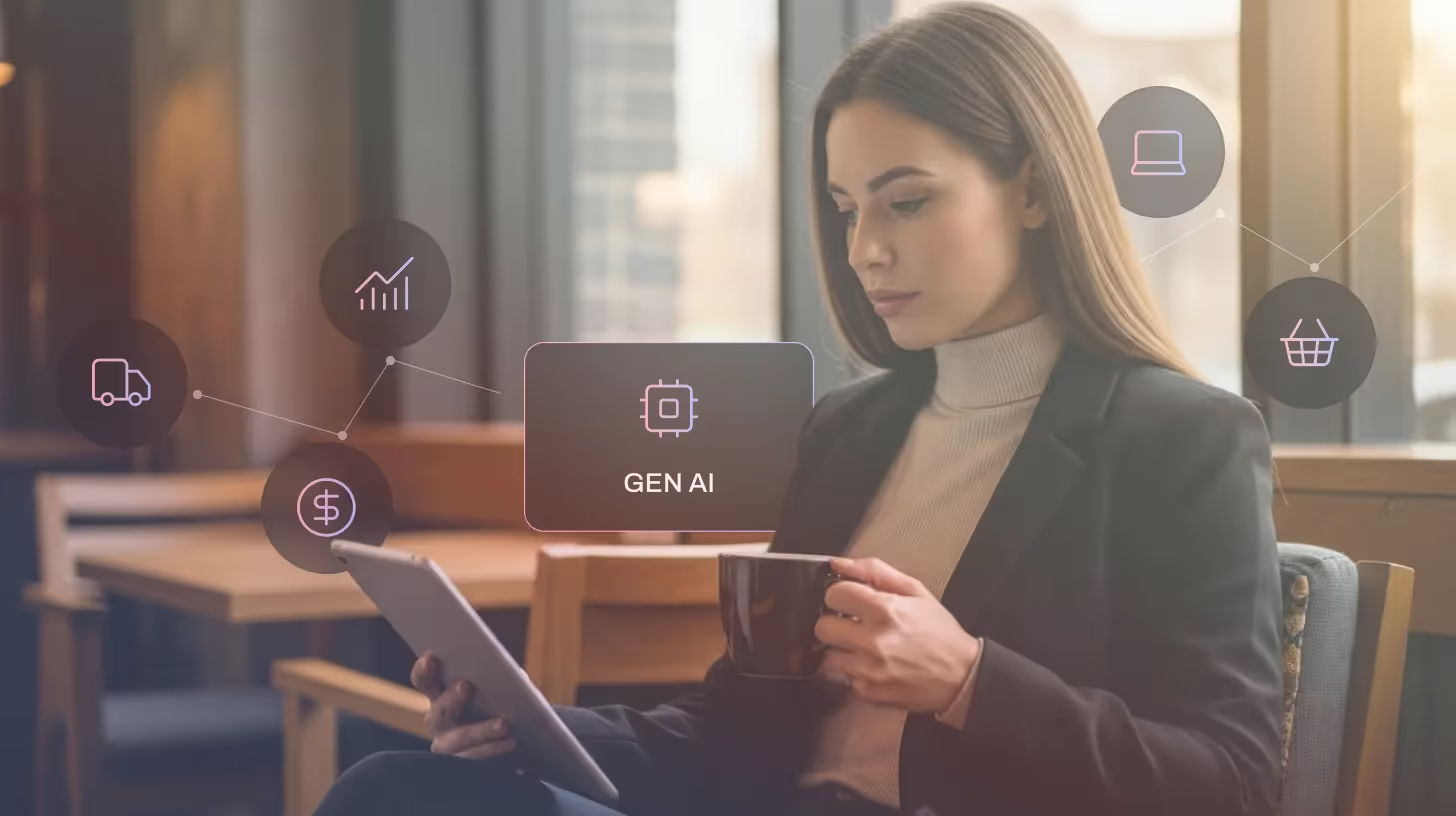AI in Customer Experience: The Complete Guide to Transforming CX

Artificial Intelligence (AI) is no longer futuristic; it’s the driving force behind today’s most impactful customer experiences. From personalized recommendations to seamless chatbot support, AI in customer experience is redefining how brands connect with people.
This guide explores how leading companies use AI for sentiment analysis, hyper-personalization, and journey optimization, transforming data into empathy, trust, and growth. You’ll also discover 10 real-world examples of brands turning AI-powered insights into stronger relationships and measurable business results.
What is AI in Customer Experience?
An AI in customer experience refers to the use of artificial intelligence technologies, such as machine learning, natural language processing (NLP), and predictive analytics, to improve customer engagement and loyalty. The goal is simple: to deliver a fast, efficient, and more personalized experience to customers.
For example, businesses can use AI bots and virtual assistants to reduce the burden on sales reps. Or they can use recommendation engines to analyze customer preferences and purchase history to create relevant products. They can also use predictive analytics: AI analyzes data patterns to anticipate customer needs and potential issues (such as service lapses or a high risk of churn).
Read: Customer Experience Survey: Elevate Your CX Game with Smart Strategies
The Role of AI in Shaping Modern Customer Experience
AI has quietly become the connective tissue of modern CX, shaping how companies listen, understand, and respond to customers across every touchpoint. It’s not about replacing humans. It’s about scaling empathy, insight, and timing the stuff humans do best through intelligent systems that never sleep.
Let’s look at how leading companies are using AI to create experiences that feel less like transactions… and more like relationships.
AI-Powered Chatbots: Instant Support That Actually Feels Human
We’ve all been that customer frustrated, waiting for help. AI-driven chatbots flip that experience on its head. They’re not just scripted responders anymore. With natural language processing and contextual understanding, today’s chatbots listen before they answer. They adapt tone, predict intent, and even escalate intelligently when human touch is needed.
Forward-thinking companies use them as digital frontlines, blending instant responses with warmth and personalization. The smartest ones train their bots using real customer interviews and feedback loops using such as TheySaid, so every interaction improves the next.
Smarter Digital Experiences with Real-Time UX Insights
Every click tells a story of frustration, curiosity, and delight. AI reads that story like a pro. Through session replay and behavioral analytics, it spots subtle friction points such as rage clicks, dead zones, and confusing paths and helps teams fix them before customers complain.
Leaders in digital CX no longer wait for feedback forms to find problems. They build proactive systems that learn in real time and continuously optimize every interaction.
Because the future of experience isn’t static, it’s self-improving.
Did you know?
AI-powered automation (like chatbots) can potentially reduce operational costs by 30% by eliminating after-hours staffing costs. Source
Personalization That Goes Beyond Guesswork
Generic experiences are over. Customers can feel when they’re treated like data points. AI analyzes millions of micro-signals, such as browsing history, purchase patterns, and even engagement timing, to predict what each customer actually wants next.
Think of it as intuition at scale. The same principles that power your Netflix recommendations now help B2B companies anticipate client needs, tailor outreach, and build stickier relationships. Leaders who embrace AI-powered personalization aren’t just optimizing funnels, they’re deepening customer trust.
Read: Understanding and Measuring Customer Experience ROI
AI-Powered Voice Systems That Understand Intent
Contact centers used to be efficiency machines. Now, they’re empathy engines. AI-based Interactive Voice Response (IVR) systems recognize natural speech and emotion, routing customers to the right place instantly or resolving simple is
sues automatically. But the real opportunity lies deeper: using those conversations as data.
By analyzing tone, hesitation, and language, AI uncovers emotion-driven insights that guide everything from training to product design. The companies leading here don’t see AI as a cost-cutter. They see it as a customer empathy amplifier.
Omnichannel Listening and Emotion Detection at Scale
Your customers talk everywhere: emails, support tickets, social media, and on calls. AI unifies this chaos. Using Natural Language Processing (NLP) and sentiment detection, AI pulls together signals from all platforms to reveal how customers feel, not just what they say.
This intelligence extends to contact centers, where AI-based Interactive Voice Response (IVR) systems recognize natural speech and emotion, routing customers instantly. By analyzing tone, hesitation, and language, AI uncovers emotion-driven insights that guide everything from agent training to product design.
Platforms like TheySaid go further, transforming raw feedback into themes, emotions, and actions your team can immediately use. It’s like having a 24/7 customer insight analyst who never sleeps.
Journey Optimization: When Every Step Feels Effortless
Most drop-offs in a customer journey come from friction you never see, such as minor confusions, unclicked buttons, and silent frustration. AI removes that invisibility. It continuously monitors user behavior, predicts intent, and guides customers toward smoother paths to completion.
For example, if a user hesitates during onboarding, AI can prompt a tutorial or connect them with support instantly before they ever hit “cancel.” That’s how modern brands make experiences feel effortless: they sense friction before it happens.
Learning and Iteration on Autopilot
Traditionally, improving customer experiences meant waiting for reports, analyzing NPS scores, and debating “what went wrong.” Now, AI makes CX iterative by design. It learns in real time, identifies patterns across thousands of interactions, and automatically suggests what to fix or double down on.
In short, AI doesn’t just help you react faster. It helps you improve continuously. This is what defines high-performing companies: their customer experience never stands still.
Automating the Mundane, Amplifying the Meaningful
The best CX teams aren’t just efficient, they’re emotionally available. But that’s hard to do when half your day goes into admin tasks.
AI automates the busywork of logging calls, categorizing tickets, and summarizing feedback so humans can focus on human things. The outcome? Faster workflows, fewer mistakes, and teams that actually have the energy to care.
And when care scales, retention follows.
Turning Better Experiences into Better Business
Empathy drives revenue; it’s that simple. Customers who feel understood buy more, stay longer, and share their positive experiences with others. In fact, studies show they’re 2x more likely to repurchase and 3x more likely to refer when they feel genuinely heard.
AI’s role isn’t to replace humans but to amplify human connection, helping teams work smarter, uncover deeper insights, and focus on meaningful, high-value interactions. The real challenge for businesses today is finding the balance: using AI transparently and ethically to maintain trust while delivering innovative, personalized service.
Watch this video to explore how AI and data are shaping modern customer experience and engagement, and how empathy, personalization, and trust together turn great experiences into lasting business growth. How AI and Data Shape Modern Customer Experience and Engagement.

Turning Feedback Into Foresight
A growing SaaS company was conducting dozens of customer interviews every week, all manually. Each conversation had valuable insights, but reviewing recordings, taking notes, and organizing feedback took hours. Patterns were missed, decisions were delayed, and opportunities slipped away.
So they turned to TheySaid’s AI-powered feedback engine. Now, every interview is automatically transcribed, analyzed for sentiment and themes, and summarized into clear, actionable insights. The team instantly knows what’s working, what’s not, and how customers really feel without sifting through endless responses.
That’s the power of AI in customer experience: it doesn’t just automate listening; it transforms understanding. Book a demo!
Did you know?
AI-powered customer support tools can slash response times from 15 minutes to just 23 seconds and handle up to half of all inquiries automatically, without a human ever stepping in. Source
How AI in Customer Experience Can Improve Business
Let’s break down how intelligent customer experience directly translates into measurable business results.
Hyper-Personalization for Higher Conversions
AI analyzes massive amounts of data to enable personalized customer experiences at scale. By directing customers to the exact products, services, and content they are most likely to buy, AI makes every interaction relevant. This targeted approach dramatically increases the success of upselling and cross-selling, leading to higher overall revenue.
Preventing Churn with Predictive Service
Modern AI uses predictive analytics to forecast customer behavior. It can alert your team when a customer shows signs of dissatisfaction or is at high risk of leaving (churn). This allows you to proactively reach out with a solution or support before a problem escalates, effectively increasing customer retention and solidifying loyalty.
Read: 10 Interview Questions to Ask Churned Customers for Valuable Insights
Optimized Marketing ROI
AI eliminates guesswork from your marketing strategy. By providing real-time, data-backed insights into audience preferences, AI ensures your marketing spend is focused on the highest-value opportunities, leading to a much better return on investment (ROI).
24/7 Service and Cost Reduction
AI-powered chatbots and virtual agents handle a huge volume of routine customer inquiries around the clock. This automates basic support, significantly reducing the workload on contact centers, lowering staffing costs, and ensuring instant service availability.
Data-Driven Testing and Iteration
AI captures every interaction and turns it into valuable, traceable data. This makes A/B testing and experience refinement simple. Businesses can quickly understand which changes are successful and which are not, enabling rapid, precise improvements to their products and services based on real-world results.

How AI Enhances Every Stage of the Customer Journey
10 Real-World Examples of AI in Customer Experience
Amazon – Redefining Personalization at Scale
Amazon’s entire business runs on AI-driven personalization. Every time you see “Recommended for You” or “Frequently Bought Together”, that’s AI at work. By analyzing browsing history, past purchases, and even real-time behavior, Amazon predicts what customers want before they do. This AI-powered recommendation engine drives nearly 35% of Amazon’s total revenue, proving that smart personalization isn’t just convenient, it’s profitable.
Netflix – Predictive AI That Keeps You Watching
Netflix doesn’t guess what you’ll like; it knows. Its machine learning algorithms analyze your viewing history, search behavior, and engagement patterns to recommend shows tailored exactly to your mood and interests. This data-driven personalization is the reason Netflix maintains such high engagement and retention rates. It’s a masterclass in using AI for customer satisfaction and loyalty.
Starbucks – Predictive Personalization with DeepBrew
Starbucks’ DeepBrew AI platform turns everyday coffee orders into data-driven insights.
It remembers your favorite drink, the time you usually visit, and even the weather in your city. Using this data, Starbucks sends personalized offers and suggestions that feel thoughtful, not salesy. This predictive analytics model has significantly boosted app engagement and customer retention, all thanks to hyper-personalized experiences powered by AI.
Sephora – AI That Acts Like a Digital Beauty Advisor
Sephora uses AI to take the guesswork out of beauty. Through its Virtual Artist app, customers can “try on” makeup using augmented reality, while AI analyzes their skin tone and purchase behavior to offer personalized product recommendations. The result? A seamless blend of technology and empathy that improves both online and in-store experiences and keeps customers coming back.
Spotify – Emotional AI for Personalized Music Experiences
Spotify’s recommendation system goes beyond playlists; it understands you. Using AI-powered behavioral analysis, Spotify identifies your listening habits, moods, and preferences to create personalized playlists like Discover Weekly. This emotional connection through AI makes Spotify feel more like a companion than a platform, an example of how AI in customer engagement can build long-term loyalty.
Delta Airlines – Predictive Service That Prevents Problems
Delta uses AI to make travel smoother before issues even arise. By analyzing flight data, weather patterns, and customer feedback, Delta’s predictive service AI alerts teams and passengers about potential delays or luggage issues in real time. This proactive problem-solving approach has transformed customer satisfaction, turning frustration into trust.
BMW – Personalizing Every Drive with AI
BMW’s in-car AI assistant learns your driving style, preferences, and routines from seat position to favorite destinations. This AI-enhanced customer experience makes driving feel intuitive and tailored to each user. The brand shows how AI can go beyond digital screens to create personalized, human-like experiences in the real world.
Airbnb – AI That Speeds Up Support and Builds Trust
Airbnb uses AI-powered automation to match guests with the right listings faster and manage customer support at scale. When users face issues, AI automatically classifies and routes them to the right team, ensuring faster resolutions. It’s an example of how AI in customer service can save time while keeping the human touch intact.
Adobe – Smarter Marketing with Predictive AI
Adobe’s Sensei platform is a behind-the-scenes powerhouse for marketers. It uses AI-driven analytics to understand audience behavior, predict campaign performance, and suggest improvements in real time. Adobe’s success shows how AI can turn massive amounts of customer data into meaningful, actionable insights, driving smarter, more personalized experiences across channels.
Nike – Turning Data into Personalized Experiences
Nike blends creativity with AI by using predictive data to recommend the right products for each customer. From the Nike app to in-store experiences, AI personalizes everything, including size suggestions, fitness tips, and product drops. This seamless integration of AI in customer journey optimization has helped Nike boost conversions and strengthen its emotional connection with customers.

Deliver the Best Customer Experience with TheySaid
At the end of the day, great customer experience isn’t just about collecting feedback; it’s about understanding it deeply and acting fast. That’s exactly what TheySaid helps you do.
TheySaid isn’t your average survey tool; it’s your AI-powered experience engine. From running smart interviews and surveys to capturing everyday feedback, TheySaid listens to your customers in real time and transforms those conversations into actionable insights.
The platform automatically generates action items, follow-ups, and recommendations, creating a continuous feedback loop that helps your team close the gap between what customers say and what you deliver.
Even better, you can train TheySaid’s AI with your company’s context and audience so every insight, summary, and suggestion feels personal and relevant to your business.
Experience how AI in customer experience feels when it’s built to understand people, not just data. Try TheySaid today.
Key Takeaways
- AI is redefining customer experience, helping businesses deliver faster, smarter, and more personalized interactions across every channel.
- Empathy and automation can coexist: AI doesn’t replace humans; it scales empathy, insight, and timing to create relationships, not transactions.
- Predictive analytics and personalization help prevent churn, optimize journeys, and build long-term loyalty.
- AI-powered tools like TheySaid make it easy to listen at scale, understand emotion and sentiment, and turn customer feedback into meaningful actions.
- The future of CX is self-improving, with AI learning from every interaction, and brands can continuously evolve based on real customer needs.
FAQs
Can AI replace human agents in customer service?
No. The goal of AI isn’t to replace humans but to enhance their effectiveness. It handles repetitive tasks so teams can focus on meaningful interactions that require empathy and judgment.
Why is ethical AI important in customer experience?
Transparency and fairness are key to maintaining trust. Ethical AI ensures data is used responsibly, avoiding bias while improving the quality and personalization of customer interactions.
How does TheySaid use AI to improve CX?
TheySaid uses conversational AI, sentiment detection, and contextual learning to transform raw feedback into clear insights and action plans — helping businesses continuously improve their customer experience.
















.svg)